Человечка нарисовал я [Chelovechka narisoval ya / It Was I Who Drew the Little Man] (Valentin Lalayants, Zinaida Brumberg + Valentina Brumberg, 1960)
Sep
1
День знаний
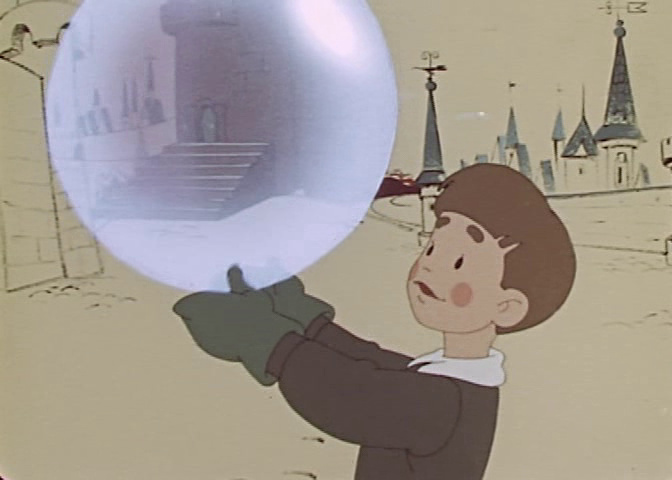
Mesmerised schoolboy Fedya holds up a huge bubble. DP: Elena Petrova.
On September 1, also known as Knowledge Day (День знаний) in Russia, an enthusiastic schoolboy draws a little man on the classroom wall, and causes a whole lot of trouble.
Happy End (Oldřich Lipský, 1967)
Sep
1
1889
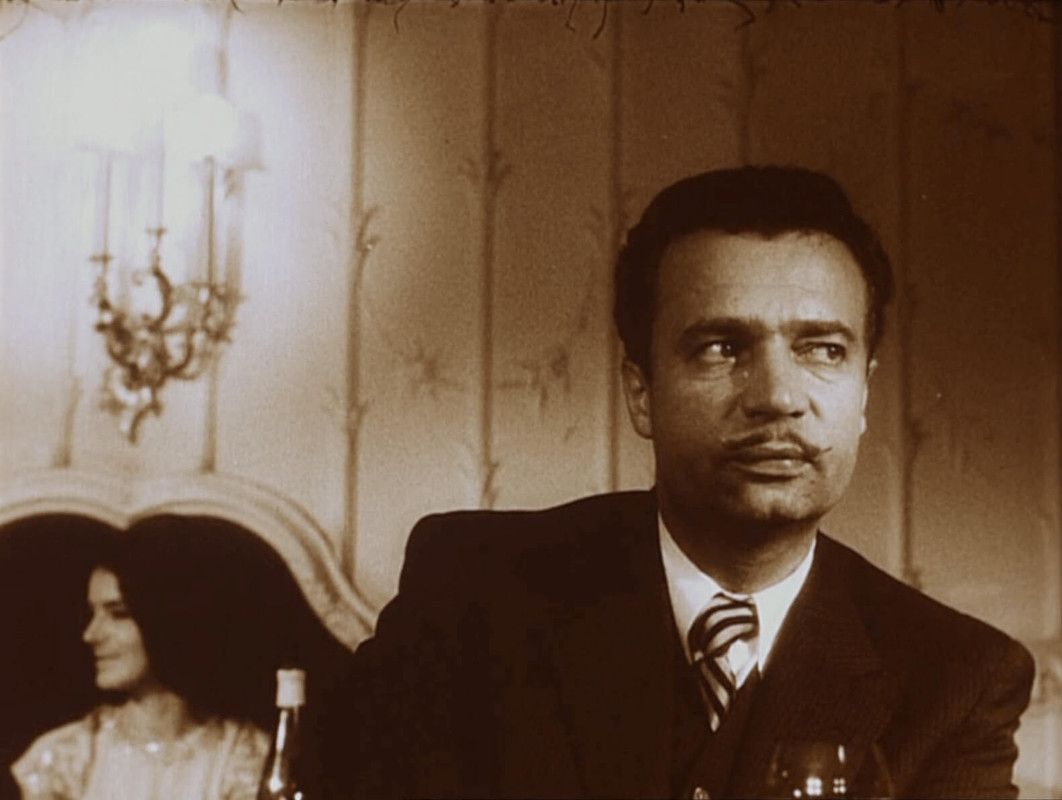
Butcher Bedřich Frydrych (Oldřich Lipský), born September 1, 1889 in Trumberk. DP: Vladimír Novotný.
“Life is a messy weapon.”Shock Corridor (Samuel Fuller, 1963)
Aug
30
1954
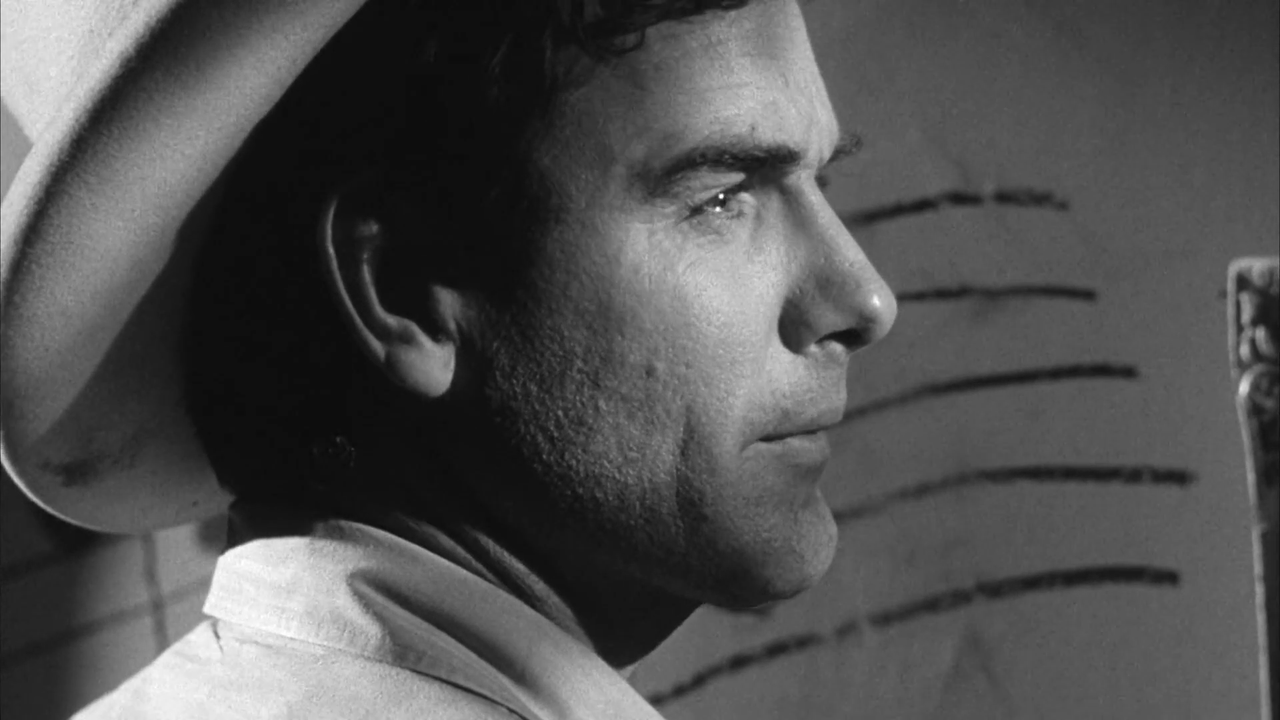
Inpatient Stuart (James Best) in one of the many scenes that appear to bear some of the seeds of Mark Frost & David Lynch's Twin Peaks (1990–1991). DPs: Stanley Cortez & Samuel Fuller.
– Pagliacci
– A house like yours must be such a job!
– Oh, a leaf! Ah, yes it's a chore.
– Admit it, you love it.
Mon oncle (Jacques Tati, 1958) / Koolhaas Houselife (Ila Bêka + Louise Lemoine, 2008)
Aug
29
grey
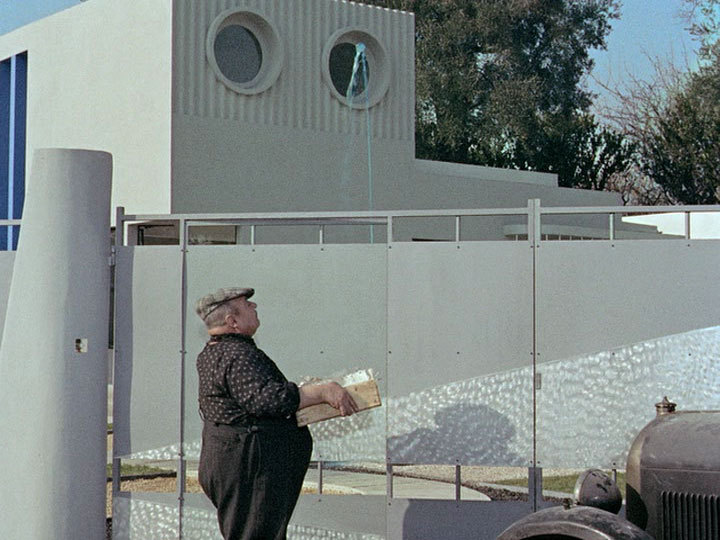
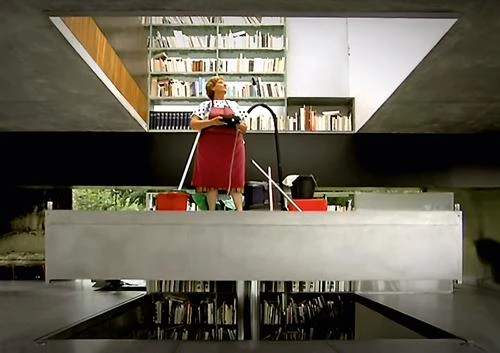
A delivery man in front of the gates of Villa Arpel (via), and custodian Guadalupe Acedo working the lift in Maison à Bordeaux. DP of Mon Oncle: Jean Bourgoin.
[A favourite] colour: grey*
Approaching the 60s, Mr Hulot finally switches from black-and-white to colour. Suddenly, we see that his suit is a beigeish grey and so is the Arpels' house, that modernist masterpiece designed by Tati. The beloved luddite struggles with hypermodern people and their hypermodern constructs, much alike the future Hulot from Playtime (1967).
In similar absurd fashion, Guadalupe Acedo, cleaning lady, works her way through Rem Koolhaas' Maison à Bordeaux (1998) in Bêka and Lemoine's Koolhaas Houselife (2008). Too steep are the stairs, too leaky everything else. Levelheaded, she does her thing; a small beacon of romantic practicality in a world of absurd efficiency.
* the Bales 2025 Film Challenge for August is not date-related but lists, for the most part, the colours of the rainbow.
“Everything is rotten. Decadence is everywhere. Why fight it?”Les créatures [The Creatures] (Agnès Varda, 1966)
Aug
29

Mylène (Catherine Deneuve) and Edgar (Michel Piccoli) Piccoli playing checkers at a small table. DPs: Willy Kurant, William Lubtchansky & Jean Orjollet.
La horse [Horse] (Pierre Granier-Deferre, 1970)
Aug
28
1923
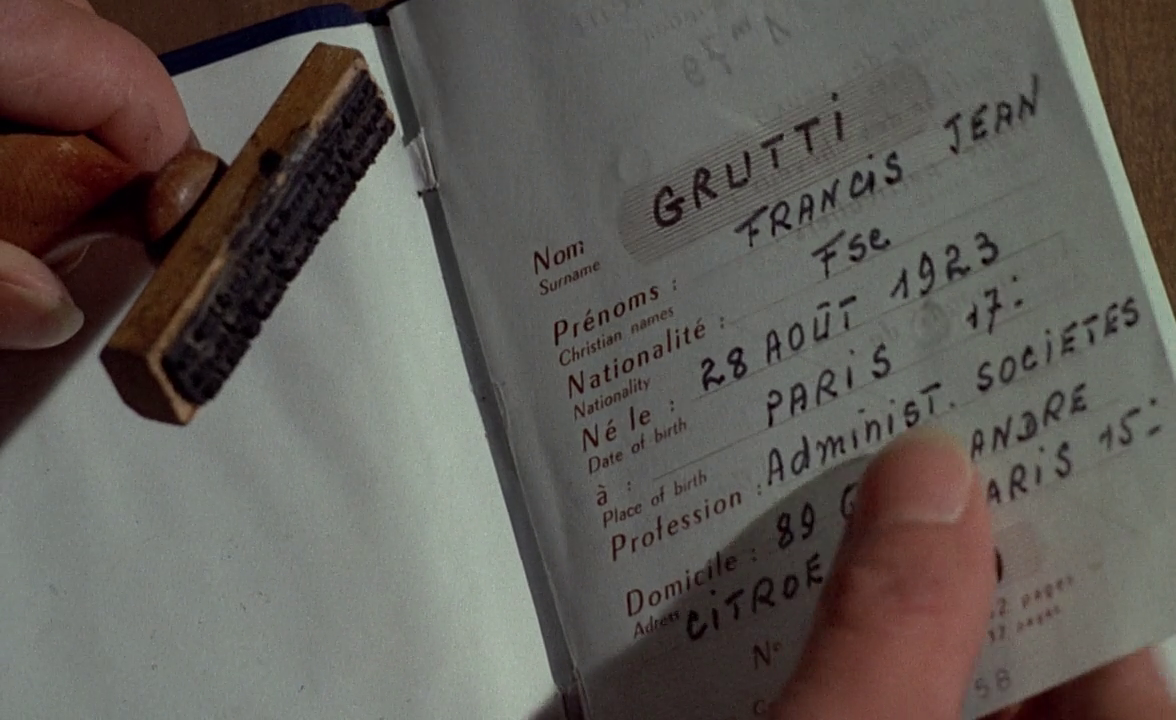
Francis Grutti's (Armando Francioli) ID, handled by someone wielding a large stamp. His birthday is August 28, 1923. DP: Walter Wottitz.
Czułe miejsca [Tender Spots] (Piotr Andrejew, 1981)
Aug
28
1998
.png)
Janek (Michał Juszczakiewicz) and Ewa (Hanna Dunowska) in embrace on a bed. DPs: Jerzy Zieliński & Ryszard Lenczewski.
The Music of the Spheres (G. Philip Jackson, 1983)
Aug
28
1994

Archive footage from the future dated August 28, 1994. DP: Nadine Humenick.
“Remember love, remember love
Love is what it takes to dream”
Bed Peace [John and Yoko: The Bed-In] (John Lennon + Yoko Ono, 1969)
Aug
27
white

John and Yoko in their bed, dressed in all-white, framed by flowers. DP: Nicholas D. Knowland.
White, in food or fashion*
– Yoko Ono, Remember Love (1969)
While the press expected the newlyweds' “bed-in” to be a scandalous nude affair, the two lovers showed up in all-white – like angels, as John put it. Surrounded by journalists and friends, John and Yoko imaged peace.
* the Bales 2025 Film Challenge for August is not date-related but lists, for the most part, the colours of the rainbow.
“Well, there are more ways than one of getting close to your ancestors. Follow the old road, and as you walk, think of them and of the old England. They climbed Chillingbourne Hill, just as you. They sweated and paused for breath just as you did today. And when you see the bluebells in the spring and the wild thyme, and the broom and the heather, you're only seeing what their eyes saw. You ford the same rivers. The same birds are singing. When you lie flat on your back and rest, and watch the clouds sailing, as I often do, you're so close to those other people, that you can hear the thrumming of the hoofs of their horses, and the sound of the wheels on the road, and their laughter and talk, and the music of the instruments they carried. And when I turn the bend in the road, where they too saw the towers of Canterbury, I feel I've only to turn my head, to see them on the road behind me.”A Canterbury Tale (Michael Powell + Emeric Pressburger, 1944)
Aug
27
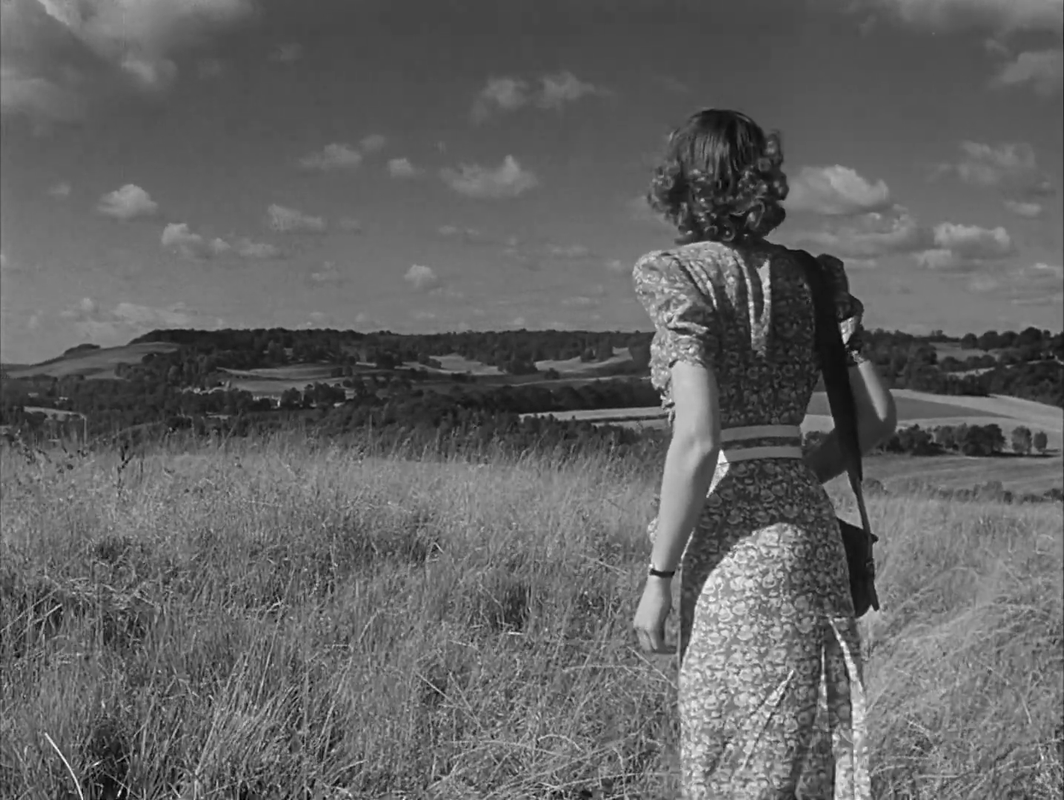
Alison (Sheila Sim) looking out over the rolling hills of Kent with the Canterbury Cathedral somewhere out there. DP: Erwin Hillier.
– Thomas Colpeper, JP